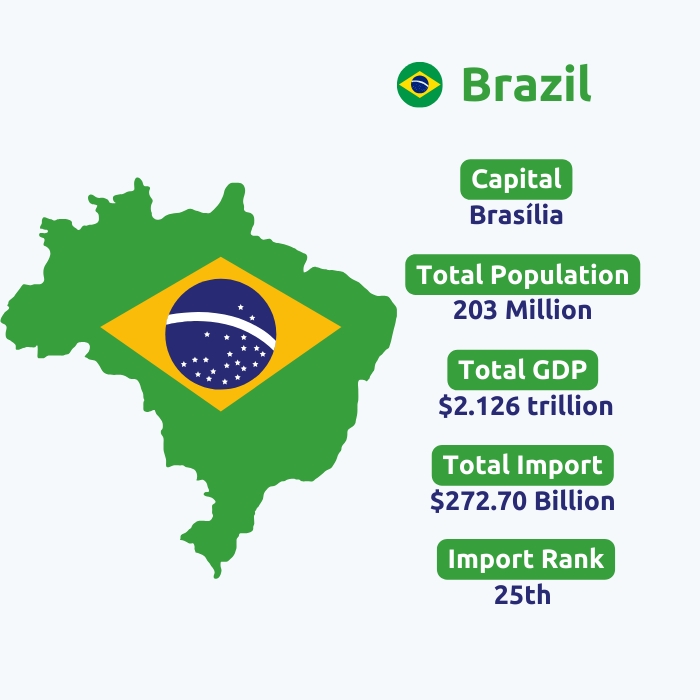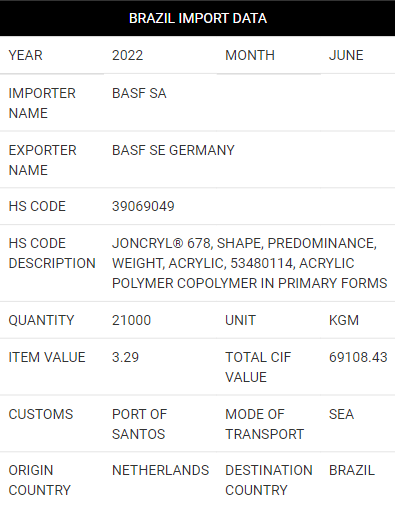Brazil Import Data
The Federative Republic of Brazil is another name for Brazil. It is situated in South America's central-eastern region. Brazil borders several nations, including Uruguay, Peru, Venezuela, and Argentina. Brazil's economy is ranked 47th out of the world's most complicated. Brazil ranked 25th out of 226 nations in terms of overall imports in 2022, according to import data. In 2022, Brazil imported goods worth a total of $272.70 billion according to the Brazil import data. Brazil's imports of goods rose by 24% from 2021 to 2022. In 2022, imports of goods increased by $57 billion. In recent years, Brazil has emerged as a strong player in the global trade market. With a diverse range of imports spanning various industries, the country has been able to make its mark on the world stage. Understanding the dynamics of the Brazilian market, regulatory landscape, and market trends will empower businesses to make informed decisions and capitalize on the opportunities available. Let us gain insights into Brazil's import data for the year 2022, shedding light on the trends, major import sectors, and key considerations for international businesses looking to engage in trade with Brazil.





